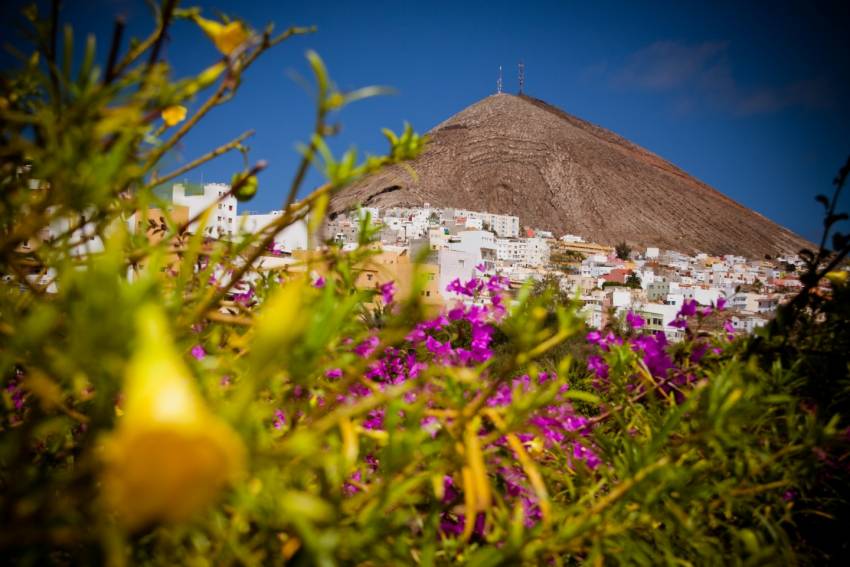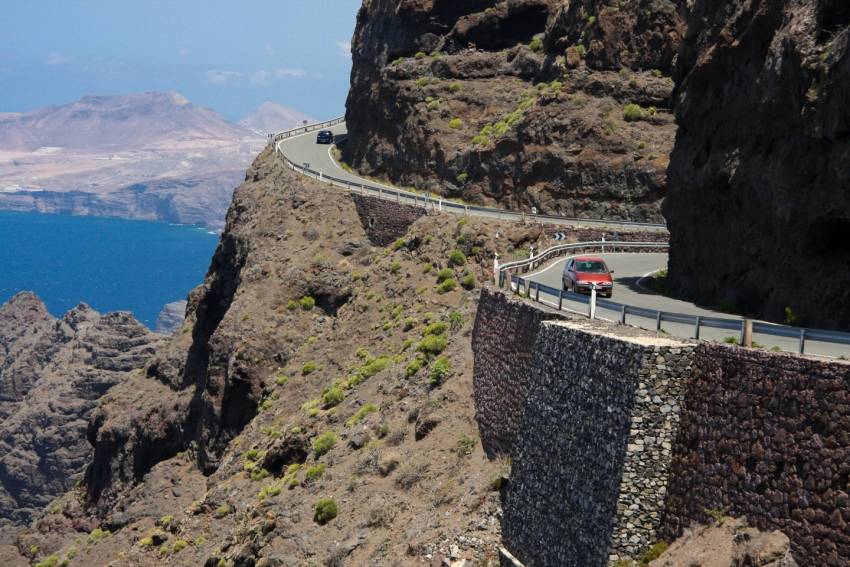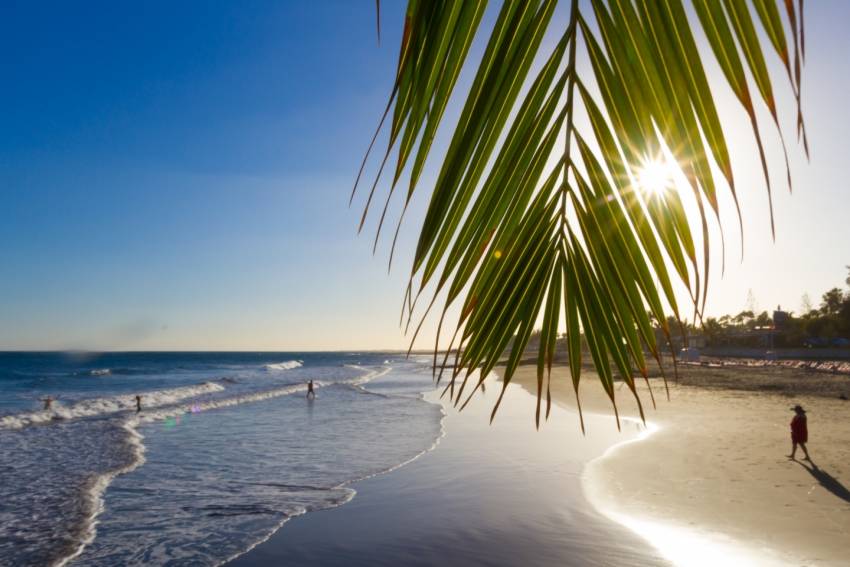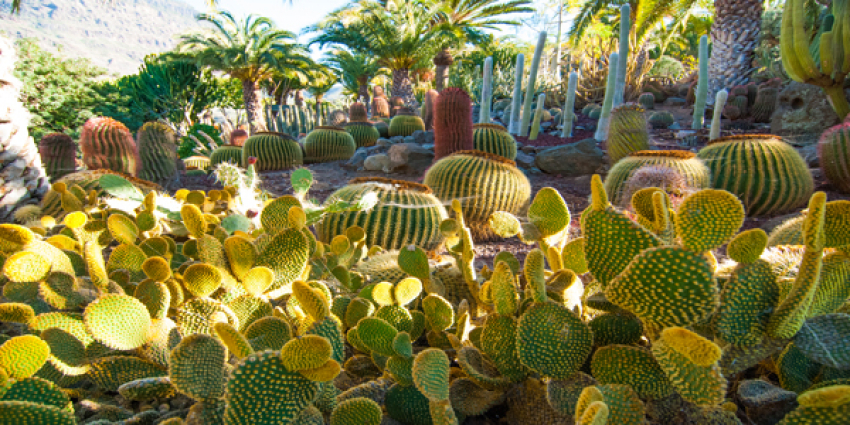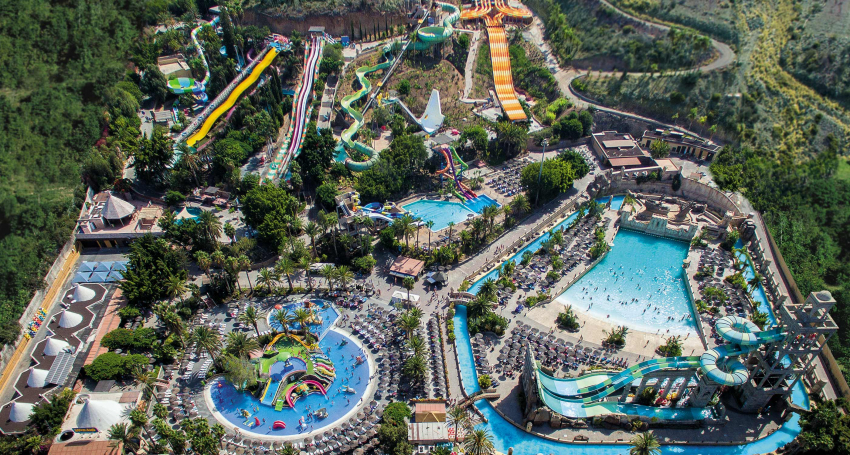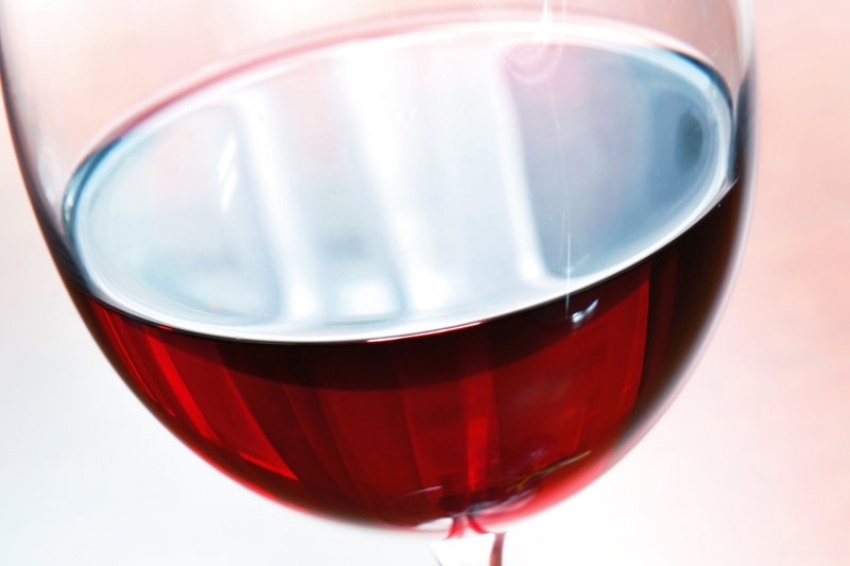Gáldar: The Gran Canaria Town They Built On A Volcano
History hasn't recorded which maniac decided to build Galdar town on one of Gran Canaria's most recent volcanoes, but the result is there for everyone to see. As a long-term real-estate bet, it's not the greatest, but the houses clinging to the steep sides of the cone certainly liven up the view.
Gran Canaria Drives: The Ridiculous West Coast Road
CLOSED: The GC 200 west coast road between La Aldea and El Risco closed for good in 2016. The new inland road, now part of the GC 2 is now open. From El Risco until Agaete you can still enjoy the stunning sights from the GC 200.
The West Coast road is Gran Canaria's most dangerous and ridiculous road. It's also one of Europe's top drives with cliff edge moments that have vertigo sufferers clambering out of the windows. It's not for the faint-hearted and if the government has it's way it'll be permanently closed within a few years.
If you like your motoring, it's worth renting a good car for the day just to experience the curves and switchbacks before the route drops into the ocean.
Driving from the south, head inland from Puerto de Mogán and take the turnoff towards Veneguera beach. Then just drive, perhaps with a stop at the green and purple rock stain for a smoothie at the roadside juice bar. Carry on through the Degollada de Tasartico gorge until you get to La Aldea town on the west coast. Drive through the town until you get to the pebble beach ( a great spot for a snack) before heading uphill again towards the Anden Verde cliffs (follow the signs for Agaete and Las Palmas).
Stop at the El Balcón lookout point for a cliff-edge view of the Dragon's tail to the south and the cliffs stretching north to Puerto de las Nieves. Then it's onwards to the highest stretch of road. If you're in any doubt as to the dangers of this road, then the huge rock-catching nets will convince you.
There's nothing along the road except for eye-popping drops and hairpin bends until you reach El Risco village. Stop at the ramshackle bar / shop in El Risco (try the mature cheese: It's as strong as it gets) or walk inland through the village and up the valley to Charco Azul pool and waterfall. You'll wind up every dog in the village but don't worry, they are harmless.
From El Risco carries on to Agaete town with its white houses and faint smell of mangos and coffee. Congratulations; you've done the West Coast road. Now you either turn around and drive it again on the outside of the road, or carry on to Las Palmas and back to the resorts via the motorway.
Warning: This road is often closed during and after rains due to fallen rocks. Do not attempt to drive it during rain! In 2010 a Guardia Civil policeman was killed after a storm while checking to see if it was clear. As of January 2015 bicycles, mopeds and motorbikes are banned on the road.
The road won't be around forever. Plans are afoot for a faster inland route and eventually, the original road will be allowed to drop into the sea. Apparently, its potential as a tourist route isn't high enough to justify the costs of clearing after the rains.
Playa Pirata: Gran Canaria's Pirate Beach
Right on the bounday between San Agustín and Bahia Feliz, this little beach at the base of a cliff is called Pirate Beach but nobody knows why.
El Cochino Beach
Why it's called Pig Beach we'll never know but El Cochino is a great alternative to the crowds of Playa del Inglés beach right next door.
Las Burras beach
Las Burras beach is the most local of the golden sand beaches in south Gran Canaria and only gets busy at weekends and during school holidays.
South Gran Canaria’s Eight Most Underrated Golden Sand Beaches
South Gran Canaria's popular beaches are packed every day but there are others that, for one reason or another, don't get the same attention. Here's our list of the area's most underrated beaches and why they deserve a visit.
El Cochino
Not one but three small beaches just east of Playa del Ingles that are so underrated that nobody knows their names. Known colectively as El Cochino (Pig Beach) they are calm, sunny and rarely crowded.
The El Cochino beaches are less windy that Playa del Ingles and Maspalomas and sheltered from the waves. Great for families and people who find the dunes a bit too big and a bit too naked.
Patalavaca
It’s small, it’s sandy and it’s always half empty. Patalavaca beach has the warm water and the sunshine of Anfi and Amadores but doesn’t get crowds: Perhaps it’s because you can’t see if from the road, or because you have to walk through a tunnel to get to the sand. Whatever the reason Patalavaca makes it onto our underrated list because it’s a great little beach with seafood restaurants, sun loungers and plenty of space.
Patalavaca is between Arguineguín and Anfi. Access is via the storm drain tunnel under the road. You can also walk to Patalavaca along the coast path from Anfi.
San Agustín
San Agustin resort was the first in south Gran Canaria has faded into semi-obscurity despite its golden beach and loyal hard-core of Scandinavian and German fans: We suspect that they've deliberately taken it off the tourist map by buying all the available property.
The beach is fantastic and rarely crowded. For families with older kids it's great as there's no strong current but often waves to play in. There’s plenty of places to eat near the golden sand and you can even walk to San Agustín beach from Playa del Inglés.
Medio Almud
This is where nudists go when they get sick of the crowds on Maspalomas beach but don't fancy trudging down the dune at Montaña de Arena. It’s low key in the extreme with no facilities but does have a road right down to the start of the beach.
While Medio Almud is more pebbles than sand you can always find a sandy place to put a towel. It's best to leave the big camera at home: Local nudists don’t appreciate snap-happy tourists waving their lenses around.
Pasito Blanco
There’s a beach at Pasito Blanco?
Yes, although getting to it is tricky as you have to park outside the private marina and walk in, or hike down from the road to Meloneras.
The beach is a mixture of golden sand and pebbles and does get crowded with locals in the summer. However, on weekdays it’s a gorgeous, quiet spot and there’s great snorkelling just offshore.
There's no facilities, although you can nip into the marina to the supermarket.
Las Burras
This golden sand beach sheltered by a groyne is where the locals go for a south Gran Canaria beach day. It's between between El Cochino and San Agustin beaches along the coastal walk and has a couple of places to eat. The best bit is at the sheltered San Agustín end by the palm trees as the open end gets windy.
Montaña de Arena
South Gran Canaria's long-standing nudist and hippie hangout is a narrow beach at the base of a giant sand dune between Pasito Blanco and Arguineguin. Access is via tracks and the beach is a 10 minute walk from the GC 500 road.
Take supplies as there are no facilities except for the occassional drinks man.
The locals are happy to share their beach with tourists but some of them object to cameras and video cameras.
While Montaña de Arena is currently pristine the area between the beach and the road is set for development. What that means for the beach itself nobody knows. Enjoy it as it is now while you can.
Puerto Rico beach
It might seem ridiculous to call one of Gran Canaria’s most popular beaches underrated but Puerto Rico gets a bad rap. Artificial, packed with sun loungers and unashamedly resorty it may be, but PR beach is still a cracking place to spend a day in the sun. Ignore the sand snobs and give it a go.
San Agustín Beach
Golden San Agustín beach somehow get's forgotten by the crowds heading for Playa del Inglés and Maspalomas and that's no bad thing. For a resort beach is quiet and laid back and there's plenty of places to eat and drink close by.
Cactualdea: Europe's Biggest Cactus Park
Aqualand: Gran Canaria's Biggest Water Park
Aqualand is Gran Canaria's largest water park and is conveniently located just behind Maspalomas resort. It's a great day out and is opening new attractions regularly in preparation for the new giant water park due to go up in Playa del Inglés.
Great Value Canary Islands Wines You Have To Try in Gran Canaria
The Canarian wine scene hasn't buzzed this much since Shakespeare's time. New wineries start up every year and there's always a new wine to try. However, because most wineries on the islands are small you can only buy them close to where they are grown. Great if you have the time and transport but a pain if you're in Gran Canaria on holiday.
Gran Canaria Info recommends:
- Default
- Title
- Date
- Random

